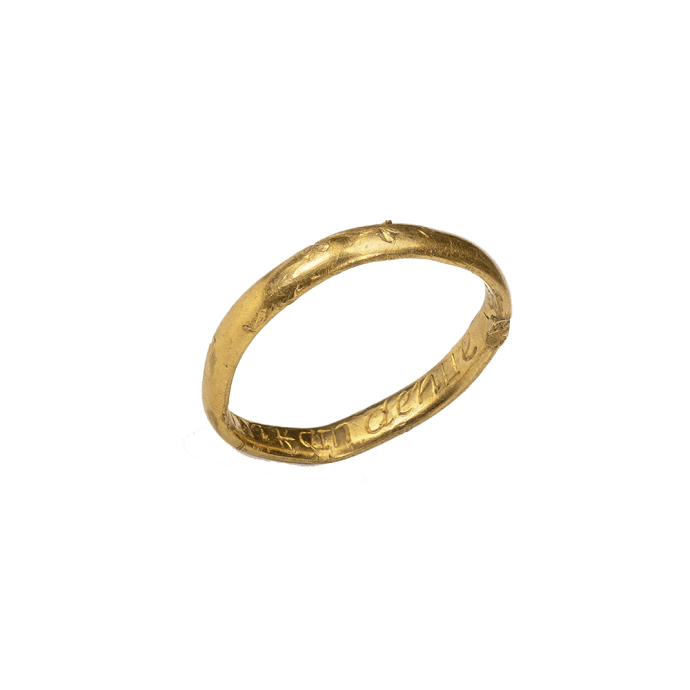


Description
A plain gold band with D-section and inside the engraved italic inscription “Rather dy thn fath denye.”The ring shows signs of wear through age, including a misshapen band. The inscription is intact, and the ring is in good wearable condition.
Literature:
“Posy rings,” their name deriving from the term poesie or poetry, are rings inscribed with mottos either in prose or verse. They often concealed love messages inside their hoop, like here, which were only known to the giver and recipient. They find mention in the plays of William Shakespeare, such as Hamlet and the Merchant of Venice. Posy rings enjoyed great popularity in Britain throughout the seventeenth and eighteenth centuries. They were traditionally exchanged between relatives, friends, lovers, and were often given as betrothal or wedding rings.
The posy here, “Rather dy thn fath denye,” is recorded in several italics variations by Evans (1931, p. 90). The same inscription is also documented in Loves Garland, though the spelling of this posy is unique amongst all extant references (p. 90). This posy and related inscriptions, such as “RATHER · DEATHE · THEN · FALSE · OF · FAYTHE,” can be interpreted as declarations of commitment to one’s partner or religion, even in the face of hardship.
For a history of posy rings with extensive examples ranging from the medieval period to eighteenth century, see: Scarisbrick 2021 and further information on posies: Evans, 1931; Anon., A Garland of Love: A Collection of Posy-Ring Mottoes, London 1907; Dalton 1912, pp. 174 ff.; Scarisbrick 2007, pp. 74 ff., Taylor and Scarisbrick 1978; Oman 1974, pp. 39 ff.